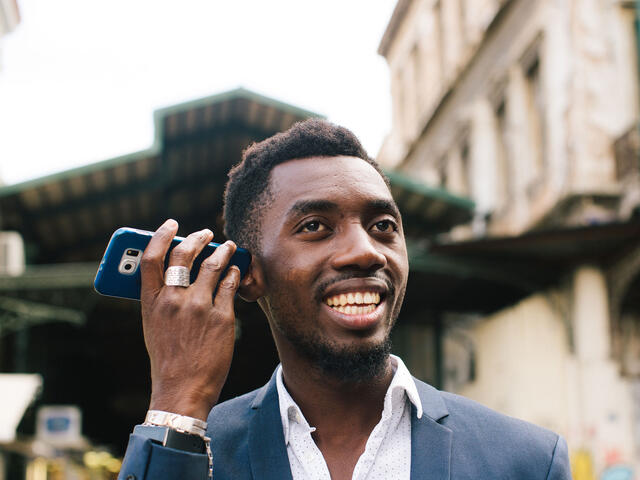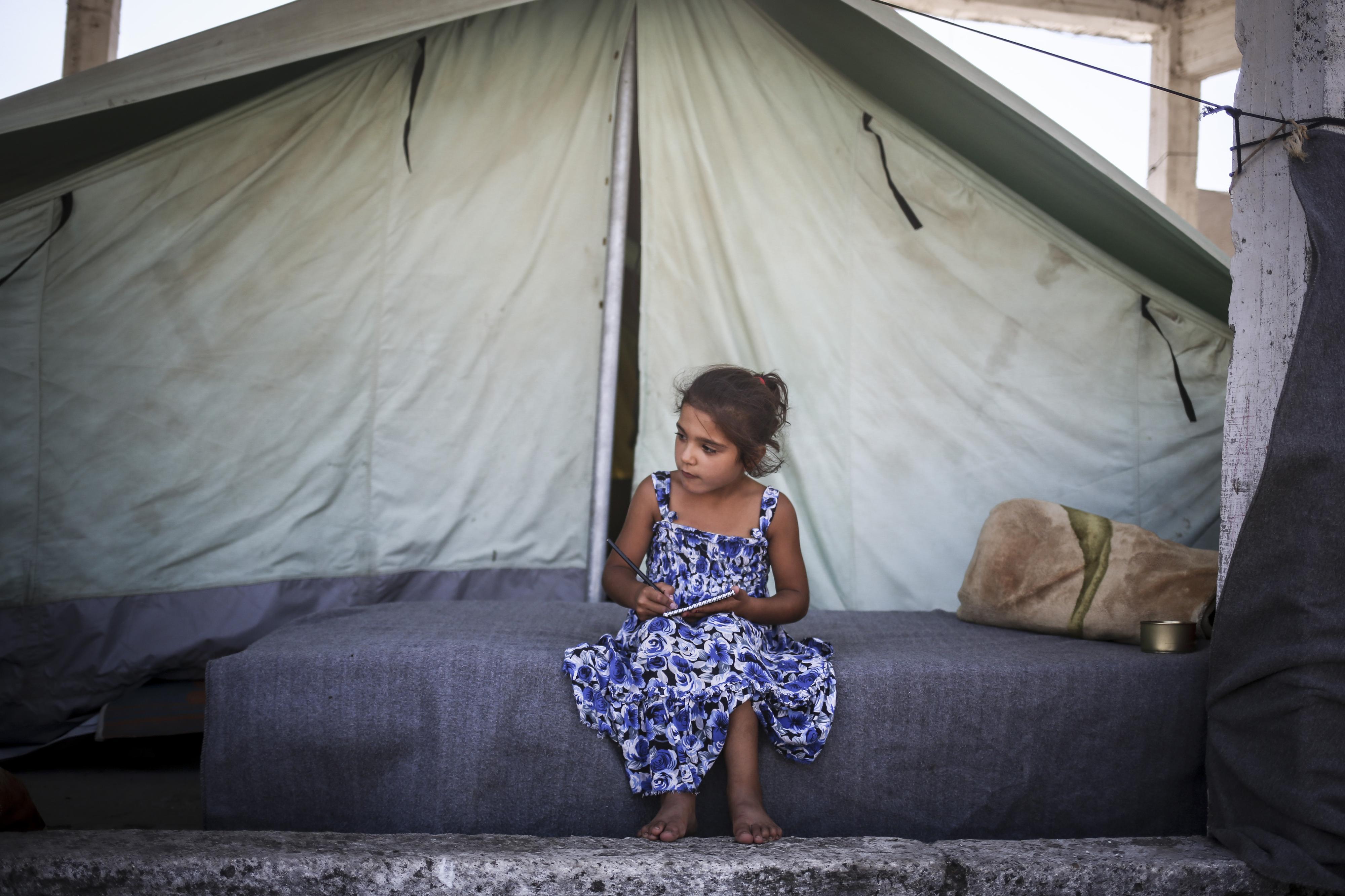In over 50 countries, our teams respond quickly and stay for as long as they are needed. We ensure people not only survive but also recover and rebuild, leading lives defined by the hope and dignity we all deserve. The IRC annually helps as many as 10,000 refugees resettle in the United States. In Europe, our programmes in Germany, Italy, Greece and the Balkans help refugees and asylum seekers to start anew.
Read more: How does the IRC respond to emergencies?
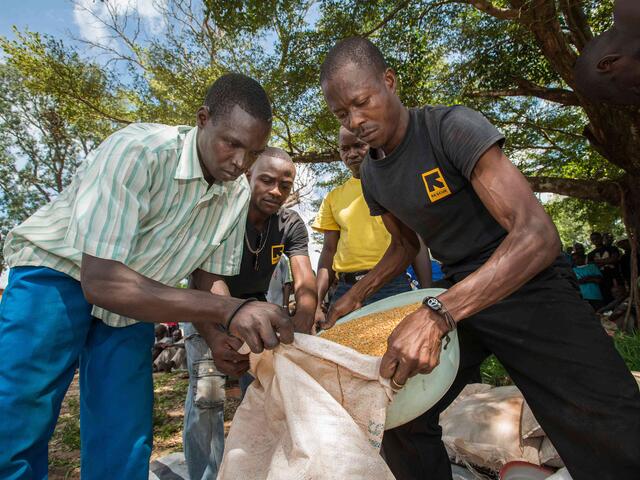
We do whatever it takes to reach people with the greatest needs in the toughest and most remote places on earth. From communities affected by militant extremism in Nigeria to those under fire in Syria, we find a way to help the most vulnerable survive.
We also recognise that women and girls face particular discrimination, violence, and a lack of equal opportunities that threaten their lives and rob them of their potential. We help them to change their own futures and uplift entire communities.
Our teams are on the ground ensuring people have food and medicine, care and support. In Syria, where violent conflict continues to shatter lives and livelihoods, the IRC supports nearly one million people—half of them children—per year.
We work with local partners to ensure that we know what works, to build the capacity of local communities, and to enable a speedy response. Despite immense challenges, we have worked with Rohingya communities in Myanmar since 2008, responding within 72 hours when violence forced hundreds of thousands to flee to Bangladesh in 2017.
Across borders, the IRC works alongside partners in Myanmar and Bangladesh to ensure people are protected, healthy and heard despite the mounting challenges faced by Rohingya communities today.
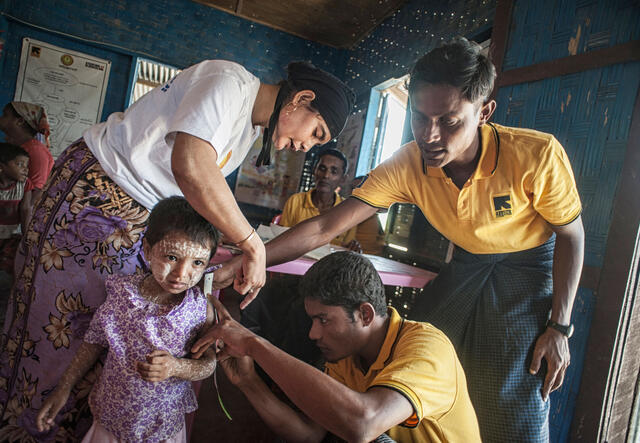
We not only respond quickly to crises - we stay until people are back on their feet. Our dedicated teams do whatever it takes to care for the people we serve, establishing support systems that enable communities to recover and thrive.
The IRC helps those who are recovering from conflict and disaster build safer communities and understand their human rights. We support people affected by violence, especially vulnerable women and children, to access critical services such as counselling, health care and legal assistance.
Last year, we trained over 23,000 people on child protection and gender-based violence prevention, reaching 1.2 million more through awareness raising on human rights.
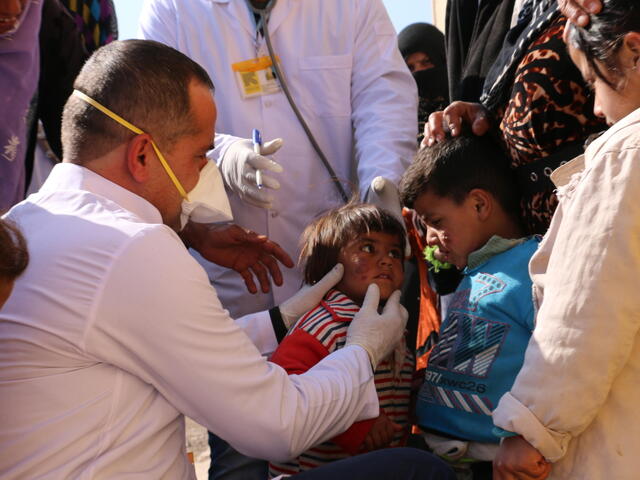
People’s safety and recovery after crisis are fundamentally linked with their ability to focus beyond their immediate needs. During crisis, families are often forced to make decisions to survive—such as pulling children out of school to work—that will have long-term negative consequences, especially for women and girls. The IRC works to restore economic opportunity and wellbeing to the communities we serve. We help people meet immediate needs while building opportunity towards a brighter future.
From cash relief in emergencies, to skills-building and employment help, we strive to make sure everyone has access to a safe and dignified means to support themselves and their families. This includes our commitment to address barriers faced by women seeking work, ensuring they are protected, informed and empowered.
In 2018, we delivered over $33 million in direct cash transfers to refugees and people affected by crisis. In Somalia alone, where communities continue to suffer from militant insurgency and natural disasters, the IRC supported over 67,000 people with cash assistance to buy essentials they need in local markets.
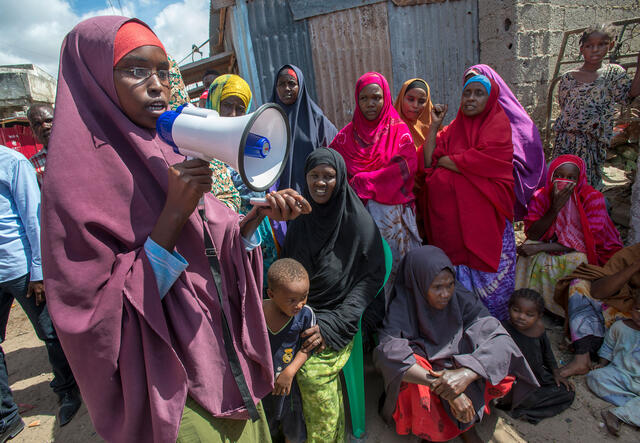
In the aftermath of crisis, the IRC helps people take back control of their lives. No matter how long it takes, we support the communities we work with for the long-haul, helping them to develop their lives and livelihoods towards a brighter future.
Education is the ultimate empowerment tool for children, their families and communities caught up in or recovering from crisis. Beyond providing education to more than one million children each year, the IRC works to innovate the very core of education programming for at-risk communities, supporting them to rebuild their futures.
In partnership with Sesame Workshop, the charity arm of television’s Sesame Street, the IRC will support over 9 million children in Syria, Jordan, Lebanon and Iraq to learn, grow and thrive -- the largest early childhood programme in the history of humanitarian aid. Our work will bring education to a generation at risk and help heal the scars of war.
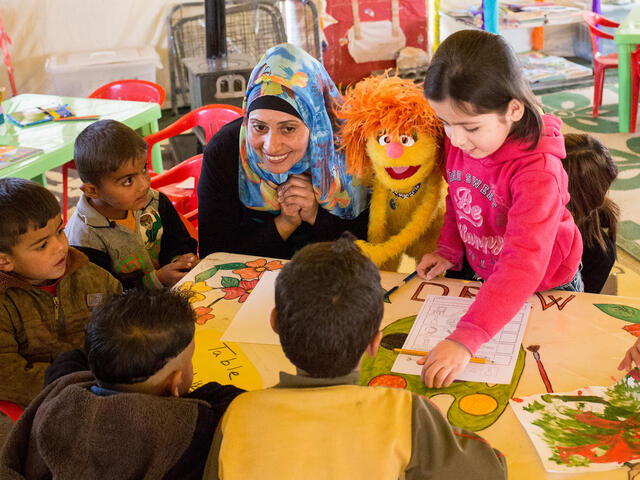
When we help communities rebuild, we work to make sure people are more equal and included. As women and girls are always most affected by conflict and disaster, their safety and voice is central to a more stable, peaceful and prosperous future.
The IRC is committed to becoming a feminist organisation. We see our mission as one that must challenge the fundamental inequalities in power between men and women in our own organisation and within the communities we serve. We seek to not only tackle the symptoms of disadvantage, but also address the power imbalances that generate them.
We strive to ensure women and girls have agency over how they live and can influence the decisions that affect their lives.
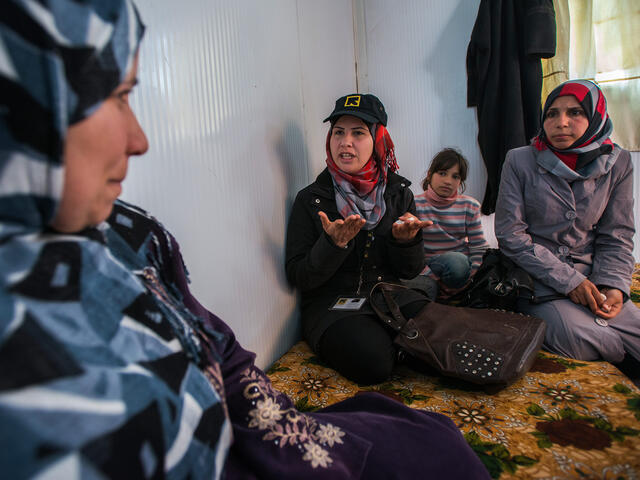
Beyond our work with the communities we serve, the IRC advocates to governments worldwide to ensure people caught up in conflict are better protected, more empowered, and given the opportunities they need to prosper.
We particularly focus on advocating for a more equal humanitarian system, one that is more responsive to the needs of women and girls. While often portrayed as helpless victims, local women and girls are in fact the invisible face of recovery in some of the worlds’ most difficult places.
From championing more resources to tackle the epidemic of gender-based violence, to promoting long-term economic opportunities for people caught in crisis, the IRC works to maximize the impact of the humanitarian sector on the lives of communities across the globe.
We relentlessly improve everything we do; and we take a rigorous, performance-based approach to delivering lasting impact. At the IRC, “good enough” is not an option.
Since our founding, we have used our experience and expertise to rethink what humanitarian aid can deliver. We think hard and we think differently, using cutting-edge research and innovative partnerships to constantly improve how we can best meet the needs of those we serve.
Our programmes are based on evidence of what works. Working alongside the communities we serve, our dedicated innovation hub, the Airbel Center, develops and tests new ideas to improve programming in partnership with governments, the private sector and other aid organizations.
We combine rigor, creativity and a healthy skepticism to find solutions that address some of the most complex problems associated with modern conflict and crisis. From using mobile technology to access those traditionally considered out of reach, to composing digital algorithms that help pair refugees with employers that need their skills, we meet 21st century problems with 21st century solutions.
Given refugees are now more likely to reside in cities than camps, we have also pursued innovative partnerships with leading businesses such as Citi and their Citi Foundation to get people back on their feet and support them to build their own businesses.
Refugees are natural entrepreneurs. We help them develop their ideas and give them financing to turn their dreams to reality. Through advocating for a more welcoming business environment with governments and the public, we support their economic potential and empower people to take back control of their lives.
